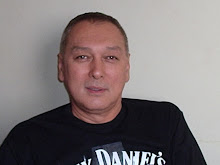Heart, heal thyself
A mouse study finds that, surprisingly, heart muscle can be made to proliferate.
Monya Baker 23 July 2009 | Nature
A protein factor may give adult heart muscle cells a new lease of life.R. Bick, B. Poindexter, UT Medical School / Science Photo Library
With a little prompting, adult hearts may be able to heal themselves — at least, they may do if a recent study in mice holds true for humans. The heart has long been considered one of the organs least capable of regenerating after injury, with heart transplants one of the few effective therapies available. But now a team led by Bernhard Kühn at the Children's Hospital and Harvard Medical School in Boston, Massachusetts, has shown that protein injections in mice not only prompt heart muscle cells, known as cardiomyocytes, to proliferate, but that this proliferation also reduces damage after a heart attack1.
"This is of major, major consequence if it turns out to be correct," says Deepak Srivastava, director of the Gladstone Institute of Cardiovascular Disease in San Francisco, California. "There have been no reports of differentiated cardiomyocytes in the adult being able to re-enter the cell cycle and divide again."
Work published earlier this year showed that the heart does indeed make new cardiomyocytes in adulthood. But because the replacement rate is very low and the source of new cells unknown, whether this finding would prove useful for treating heart disease was unclear. Kühn, a practising pediatric cardiologist, says he is already working to turn his finding into a potential therapy2.
To hunt for factors that could cause adult tissue to make new cardiomyocytes, Kühn and his colleagues isolated heart cells from adult rats and exposed them to proteins already known to prompt fetal tissue to build hearts. Their search identified the well-studied protein neuregulin 1. Kühn's team then turned to mice, simulating heart attacks in dozens of them by tying off a major artery feeding the heart before giving half of them abdominal injections of neuregulin 1 for 12 weeks. After waiting two weeks for the direct effects of neuregulin 1 to wear off, the researchers found that scars resulting from the heart attack were 46% smaller in treated than untreated mice. Additionally, hearts in treated mice displayed less of the weakening cell overgrowth that is typically observed after a heart attack, and they could even pump more blood.
sexta-feira, 24 de julho de 2009
Assinar:
Postar comentários (Atom)

Nenhum comentário:
Postar um comentário